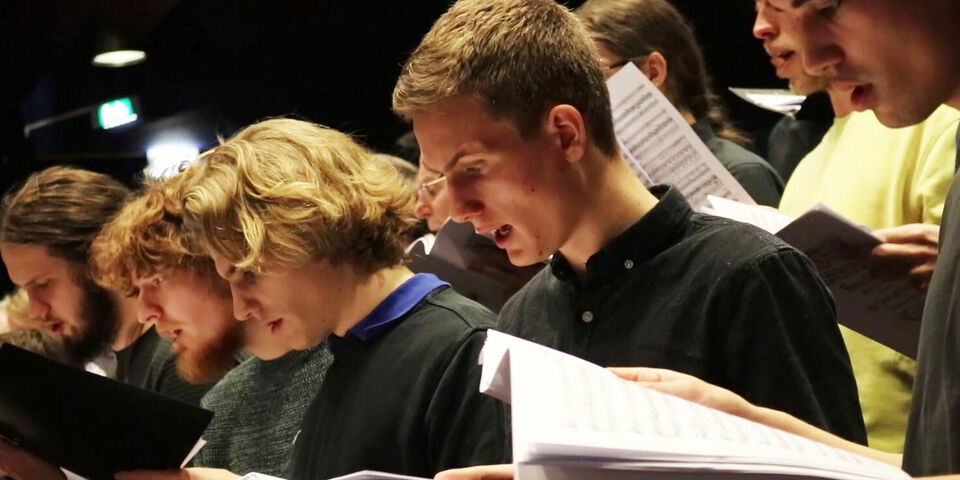Musical race against the clock with sQratch
Last Saturday, some thirty students threw themselves, with absolutely no singing experience, into ‘sQratch,’ a challenging music project organized by student music association Quadrivium in collaboration with Studium Generale. A huge choir and orchestra, formed especially for this occasion, rehearsed a piece of classical music in just one day and performed it that very night in the hall of the Auditorium.
‘Requiem in C minor’ by Luigi Cherubini - we can think of easier pieces to sing along to. But according to co-organizer Daan den Hartog of Quadrivium (which celebrates its eleventh anniversary), the piece lent itself perfectly to sQratch. “We wanted a longer piece of music, otherwise the concert would have been too short. It takes forty-five minutes to perform this piece, and it’s relatively easy for a composition of that length - although it does of course contain a couple of difficult passages.”
Read on below the video.
Saturday, a group of motivated musicians and singers bravely sank their teeth into this work by the Italian composer, whose admirers included his colleague Beethoven and Napoleon. The performers had a diverse musical track record. Of the sixty students in the choir, a small majority of daredevils had no experience at all; however, the choir was reinforced with several dozens of slightly older and more experienced singers both from within and outside the university.
“In theory, it’s fun to do something like this exclusively with students. But if you only ask people with very little or no experience at all, you just can’t make a piece like this work. By also inviting a few older choir members, you get a better result, and it becomes easier for newcomers to keep up,” Den Hartog explains. He says that for eighty percent, the orchestra was formed by members from different student orchestras, with reinforcement and coaching from a few professional musicians.
Daunting
A classical piece of music such as the Cherubini Requiem can be quite daunting to new choir members in particular, Den Hartog explains. “You’re suddenly handed sheet music, and it contains a lot of information. You really have to learn how to read all over again, and at the same time, you need to listen very carefully to what goes on around you. Often, what works best is to try to copy those around you who do know what they’re doing.” He says that Saturday afternoon was mostly spent on getting to know one another, warming up and trying things out, “after which we quickly started to work together. After the lunch break, it basically soon came down to dotting the i’s and crossing the t’s.”
Den Hartog is very satisfied with the result. “We really achieved something very special for one day of rehearsal. The conductor (Donia Surowiec, whose activities include conducting Quadrivium’s choir Vokollage, ed.) didn’t expect us to achieve this either.”



Discussion